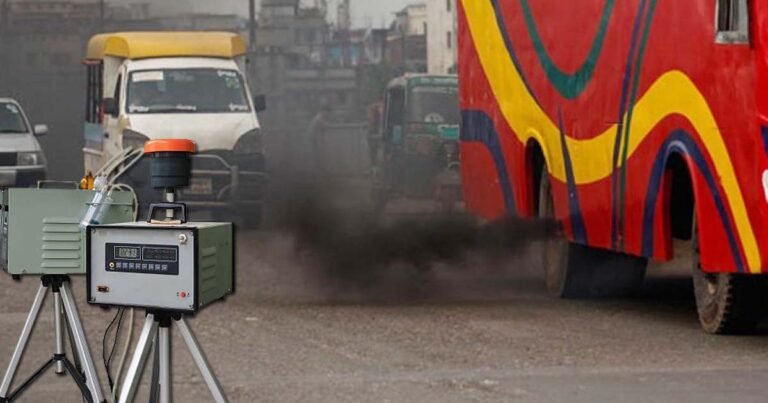The government of Bangladesh has signed an agreement with Japan to install air pollution monitoring devices on the streets of Chattogram and Dhaka to measure the impact of transportation pollution. The Japanese equipment will be purchased for more than 75 crore taka. The devices will be installed along various roads in both cities.
On Monday, February 3, the Economic Relations Division (ERD) of Bangladesh signed a “Note of Exchange” and a “Grant Agreement” with the Japanese government. Md. Shahriar Kader Siddique, Secretary of ERD, signed on behalf of the Bangladesh government. On behalf of Japan, Saida Shinichi, the Japanese Ambassador to Bangladesh, signed the “Note of Exchange,” and Ichiguchi Tomohidi, Chief Representative of JICA in Dhaka, signed the “Grant Agreement.”
According to the Department of Environment, the initiative is part of “The Project for Improvement of Equipment for Air Pollution Monitoring.” A total of eight Japanese-made air pollution monitoring stations will be set up. In Dhaka, stations will be installed along roads in areas like Uttara, Banani, Rampura, Jatrabari, and Dhanmondi. In Chattogram, two stations will be established on land owned by the Chittagong Development Authority (CDA) and the Bangladesh Semiconductor Industry Association (BSIA), with one mobile station that will patrol high-traffic areas.
These devices will provide 24-hour data on air quality, focusing on transportation-related pollution in the two cities. The government will use this information to determine the level of pollution caused by transportation and decide on necessary actions to mitigate it.
The project’s estimated total cost is 1,089.5 million taka, with 411.1 million taka provided by the Bangladeshi government and 678.4 million taka in Japanese grants. The project will run from March 2025 to June 2028. The main objective is to monitor air quality near roadsides and evaluate the contribution of transportation-related pollution.
This project also aims to identify pollution levels from transportation and other sources, assess the negative impact of air pollution on public health, and determine strategies to reduce pollution. The project’s Development Project Proposal (DPP) has been approved by the Planning Commission’s Project Evaluation Committee (PEC) and is expected to be finalized at the National Economic Council’s (NEC) Executive Committee meeting.
Mohammad Abdul Motaleb, Deputy Director (Air Quality Management) at the Department of Environment, said, “The project will install eight modern Japanese air pollution monitoring stations. These devices will provide 24-hour air quality data and count roadside pollution, identifying the extent of transportation-related pollution. Afterward, the government will determine policies to address the issue.”



